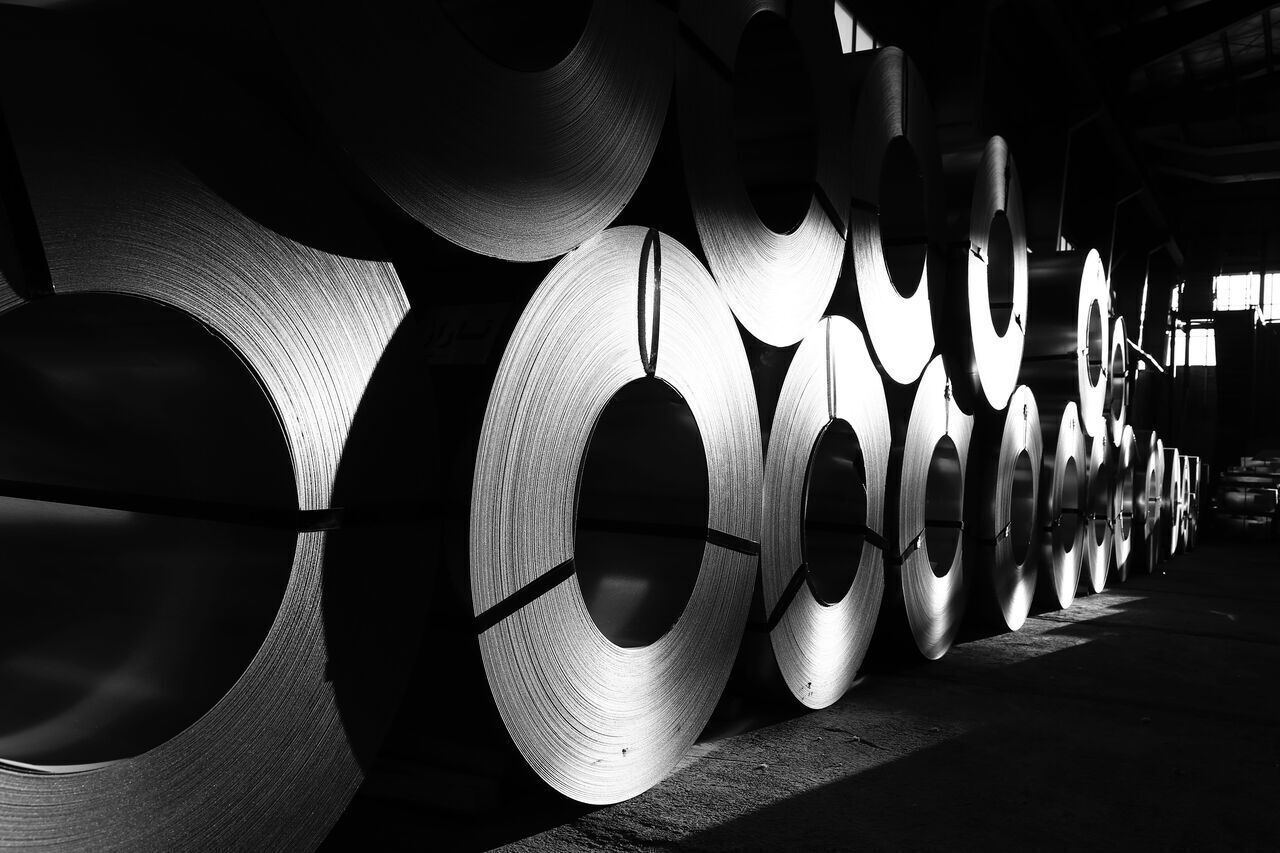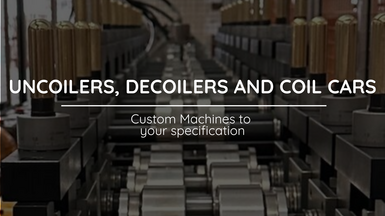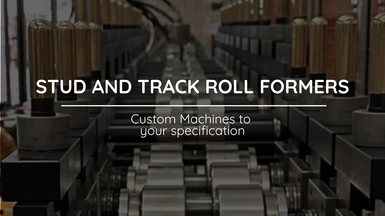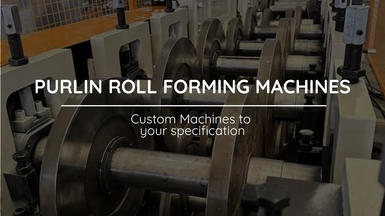
Sheet Metal Coil
Sheet metal coils are essential in the manufacturing industry because they provide a continuous and efficient source of raw material
Posted on Tuesday, November 21, 2023
A sheet metal coil, often simply referred to as a "coil," is a long, continuous strip of flat metal that is wound into a roll or coil shape. Sheet metal coils are commonly used in various industries for manufacturing processes such as metal fabrication, stamping, forming, and more. These coils are typically made from materials like steel, aluminum, copper, or other metals and alloys, depending on the specific application.
Here are some key points about sheet metal coils:
- Material Selection: The choice of material for a sheet metal coil depends on the desired properties of the final product. For example, steel coils are frequently used in construction, automotive, and appliance manufacturing due to their strength and durability, while aluminum coils are often used in aerospace and transportation industries because of their lightweight properties.
- Thickness and Gauge: Sheet metal coils come in various thicknesses, which are often measured in gauges (such as 18-gauge steel). Thicker gauges are more robust and suitable for structural applications, while thinner gauges are used for lighter-duty applications.
- Width and Length: Coil width and length can vary widely, depending on the manufacturing process and the requirements of the final product. The coils may be narrow or wide, and their length can range from a few feet to thousands of feet.
- Manufacturing Process: Sheet metal coils are typically produced through a rolling process. Flat metal sheets are fed into a rolling mill, where they are gradually reduced in thickness and wound into a coil shape. This process can also involve heat treatment to improve the material's properties.
- Coil Handling: Handling sheet metal coils requires specialized equipment due to their size and weight. Coil handling equipment includes coil cars, coil cradles, and coil handling hooks, which are used to transport and manipulate the coils during production.
- End Use: Sheet metal coils serve as a primary raw material for various applications, including the production of metal components, parts, and products. Manufacturers can further process the coils through cutting, stamping, bending, welding, and other fabrication methods to create finished products.
- Storage and Transportation: Coils are often stored in warehouses or on coil racks before being transported to manufacturing facilities. When transported, they are typically secured to prevent unwinding or damage during transit.
Sheet metal coils are essential in the manufacturing industry because they provide a continuous and efficient source of raw material for a wide range of products. Their versatility and ease of handling make them a valuable resource for industries that rely on sheet metal for their production processes.
Metal coil sizes
Metal coil sizes can vary significantly depending on factors such as the type of metal, its thickness, and the requirements of the specific application or industry. Below are some general guidelines regarding common metal coil sizes for various types of metals:
- Steel Coils:
- Width: Steel coils can have widths ranging from a few inches (narrow coils) to several feet (wide coils). Typical widths for steel coils used in manufacturing are 24 inches, 36 inches, 48 inches, and 60 inches.
- Thickness (Gauge): Steel coils come in various thicknesses or gauges. Common steel gauges for coils range from 10-gauge (approximately 0.1345 inches thick) to 24-gauge (approximately 0.0239 inches thick).
- Aluminum Coils:
- Width: Aluminum coils are available in a range of widths similar to steel coils. Common widths include 24 inches, 36 inches, 48 inches, and 60 inches.
- Thickness (Gauge): Aluminum coils come in various thicknesses as well. Common aluminum gauges for coils are typically between 0.032 inches (20-gauge) and 0.125 inches (10-gauge).
- Copper Coils:
- Width: Copper coils can be found in various widths depending on the application. Common widths include 12 inches, 16 inches, 24 inches, and 36 inches.
- Thickness (Gauge): Copper coils are available in different thicknesses, with common gauges ranging from 16-gauge (approximately 0.0508 inches thick) to 24-gauge (approximately 0.0201 inches thick).
- Stainless Steel Coils:
- Width: Stainless steel coils come in a range of widths similar to other metal coils. Common widths include 24 inches, 36 inches, 48 inches, and 60 inches.
- Thickness (Gauge): Stainless steel coils are available in various thicknesses, typically ranging from 10-gauge (approximately 0.1345 inches thick) to 26-gauge (approximately 0.0179 inches thick).
- Other Metal Alloys: Coil sizes for other metal alloys, such as brass, bronze, and nickel alloys, can vary widely based on the specific alloy and application. They are often available in similar widths and thicknesses as the metals mentioned above.
It's important to note that coil sizes can be customized to meet the unique needs of manufacturers and industries. The coil width and thickness are selected based on factors like the intended use of the metal, the equipment used for processing, and efficiency in production.
Coil lengths can also vary, with common lengths ranging from hundreds of feet to thousands of feet, depending on the manufacturing process and storage capacity.
Manufacturers and metal suppliers typically provide detailed specifications for their metal coils, including dimensions, thicknesses, and tolerances, to help customers choose the right coil sizes for their specific applications.
Metal coil prices
Metal coil prices can vary widely depending on several factors, including the type of metal, its grade or quality, the current market conditions, the supplier, and the quantity being purchased. Here are some general factors that can influence metal coil prices:
- Type of Metal: The price of metal coils is primarily determined by the type of metal being used. Common metals for coils include steel, aluminum, copper, stainless steel, and various metal alloys. Each metal has its own market price, which can fluctuate based on supply and demand dynamics.
- Metal Grade: Some metals, particularly steel and stainless steel, come in various grades that offer different properties and quality levels. Higher-grade materials with specific characteristics may be more expensive than standard grades.
- Market Conditions: Metal prices are influenced by global and regional market conditions. Factors such as economic conditions, trade policies, production levels, and geopolitical events can impact metal prices.
- Thickness and Size: The thickness and size of the metal coil can affect its price. Thicker coils typically cost more due to the increased material content, and larger coils may also have higher prices.
- Quantity: The quantity of metal coils being purchased can have an impact on pricing. Bulk or large-volume orders often result in volume discounts or lower unit prices compared to smaller orders.
- Processing and Finishing: Metal coils can undergo various processing and finishing treatments, such as surface coatings, painting, or special treatments. These additional processes can add to the cost of the coil.
- Supplier and Location: The choice of supplier and its location can also influence metal coil prices. Different suppliers may offer varying pricing structures and delivery costs.
- Currency Exchange Rates: For internationally traded metals, fluctuations in currency exchange rates can affect the final price of metal coils.
To get accurate and up-to-date metal coil prices, it's essential to contact metal suppliers, distributors, or manufacturers directly. They can provide you with price quotes based on your specific requirements and the current market conditions.
Keep in mind that metal prices can be subject to volatility, so it's a good practice to monitor the market and consider locking in prices or negotiating long-term contracts if stability and predictability are essential for your business operations. Additionally, market prices for metals can change frequently, so the prices available at any given time may differ from those at the time of this response.
Metal coil handling
Handling metal coils, whether they are steel, aluminum, copper, or other metals, requires specialized equipment and safety precautions due to their size, weight, and potential hazards. Proper coil handling is crucial to ensure the safety of workers and the integrity of the coils. Here are some important considerations for metal coil handling:
- Personal Protective Equipment (PPE):
- Workers involved in metal coil handling should wear appropriate PPE, including steel-toed boots, gloves, hard hats, and eye protection to safeguard against potential hazards.
- Equipment and Tools:
- Coil handling equipment is essential for lifting, transporting, and manipulating metal coils. Common equipment used for metal coil handling includes coil lifters, coil hooks, coil cradles, coil cars, and coil racks. Ensure that all equipment is well-maintained and in good working order.
- Forklifts or overhead cranes may be used to move coils within a facility. Operators should be trained and certified to operate these machines safely.
- Inspection:
- Before handling, inspect the coils for any damage or defects. Damaged coils should be handled with extra care or removed from service to prevent accidents.
- Weight Capacity:
- Ensure that the handling equipment being used has the appropriate weight capacity to lift and transport the specific metal coils. Overloading equipment can lead to accidents.
- Proper Lifting Techniques:
- Train workers in proper lifting techniques to prevent strains and injuries. When using coil hooks or lifters, make sure they are properly attached to the coil's eye or core.
- Secure Transportation:
- When moving coils, ensure that they are properly secured to prevent shifting during transportation. Coil cradles, racks, or specialized carriers can help secure coils in place.
- Handling Angles:
- When lifting or tilting coils, use caution to avoid uncontrolled movement or rolling. Always maintain a firm grip on the coil to prevent it from slipping.
- Awareness of Coil Ends:
- Be aware of the coil ends, which can be sharp or jagged. Proper handling techniques can prevent injuries from contact with these sharp edges.
- Stacking:
- When stacking coils, follow proper stacking procedures and guidelines. Avoid stacking coils too high or in an unstable manner to prevent accidents.
- Training:
- Ensure that workers involved in metal coil handling receive adequate training on safety procedures and equipment operation. Regular refresher training can help reinforce safe practices.
- Communication:
- Effective communication among workers involved in coil handling is crucial. Use hand signals or verbal communication to coordinate movements and actions.
- Emergency Procedures:
- Establish and communicate emergency procedures in case of accidents or mishaps during coil handling. Workers should know how to respond to different situations.
Metal coil handling requires a combination of equipment, training, and safety protocols to minimize the risk of accidents and injuries. Properly trained and equipped personnel are essential for safe and efficient coil handling operations.
Roll Forming Machines LLC's New Factory
Posted on Sunday, March 23, 2025
We have relocated factories, which will be available for tours very soon.

Uncoiler, Decoiler and Coil Car Roll Forming Machine Accesories from Roll Forming Machines LLC
Posted on Sunday, November 24, 2024
Contact us today with your specifications for a custom Uncoiler, Decoiler or Coil Car at sales@rollformerusa.com or call us at (+1) (407) 859 1119

Stud and Track Roll Forming Machines from Roll Forming Machines LLC
Posted on Saturday, November 23, 2024
Contact us today with your specifications for a custom Stud and Track Machine at sales@rollformerusa.com or call us at (+1) (407) 859 1119

Cee and Zee Purlin Roll Forming Machines from Roll Forming Machines LLC
Posted on Saturday, November 23, 2024
Contact us today with your specifications for a custom Cee and Zee Purlin Machine at sales@rollformerusa.com or call us at (+1) (407) 859 1119